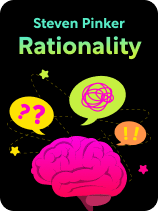

This article is an excerpt from the Shortform book guide to "Rationality" by Steven Pinker. Shortform has the world's best summaries and analyses of books you should be reading.
Like this article? Sign up for a free trial here.
What does “tragedy of the commons” mean? How do you participate in it, and how does it affect you?
In his book Rationality, Steven Pinker explores why people make irrational decisions. He discusses game theory, which seeks to explain how rational thinking can go out the window when an individual’s needs are in competition with others’ needs. The tragedy of the commons is an example of this.
Keep reading to learn about this fascinating—and sometimes devastating—dynamic.
The Tragedy of the Commons
What does “tragedy of the commons” mean? The tragedy of the commons is a dynamic that applies to situations involving shared resources, where everyone in a group has an individual incentive to take as much of that resource for themselves as possible and contribute as little as possible, which ultimately harms everyone. For example, each fisher in a village will be incentivized to catch as many fish as they can so that others don’t take them first. Unfortunately, if everyone is fishing aggressively, the stock is soon depleted—and then no one has enough.
The same dynamic shows up in any situation where a public good is shared, be it roads, schools, or a military force—everyone benefits from using these things, but each individual benefits more if others pay for them. This dynamic also affects how the world’s environmental crisis plays out, as each individual or country is incentivized to consume energy and resources as they wish, hoping that others will curtail their own use. However, those others have the same incentives to use as much as they want to, too.
Pinker writes that the most effective way to manage this dilemma is to remove the choice from individuals and instead have an outsider regulate people’s decisions—specifically, a government or organization that oversees how much each individual can take from the shared resource and establishes rules or contracts that individuals must abide by. When “free riders” are punished for taking too much or not contributing enough (through fines, for example, for failing to pay taxes), everyone is more likely to refrain from the self-benefiting behavior that can drain a public resource because they can trust that others are also refraining.
| Scarcity and the Tragedy of the Commons Ironically, the tragedy of the commons can come about either because people are hoping for the best from others or because they assume the worst of others. In many of the examples Pinker mentions, like unwillingness to pay for schools, the military, and so on, or in the way both individuals and countries fail to curb their environmental waste, people are hoping for the best from others: They’re hoping that others will step up and do what needs to be done to prevent future problems. But there’s another instinct that can drive the tragedy of the commons, one that comes from assuming the worst of others: a fear of scarcity, which can motivate people to grab what they can, while they can. This is the instinct underpinning the situation of fishers taking more than they should. An example of how this can play out was demonstrated by the efforts of the park management of the Petrified Forest in Arizona to discourage people from taking pieces of petrified wood as souvenirs. In the mid-20th century, the park posted signs warning that if theft of rocks samples continued at current rates, the forest would disappear within decades. Unfortunately, the signs had the opposite of their intended effect: They led people to believe that the rocks were scarce, making them want to grab some before they were all gone—especially since it seemed lots of other people were doing the same. Theft rates increased, rather than decreased, as people who fear a resource will be depleted by others are more likely to deplete it themselves. In either case, whether people are hoping for the best or fearing the worst in other people, the most effective solution often is, as Pinker suggests, regulation by an outside party, as that’s the only way to establish the trust that will ameliorate either extreme. |

———End of Preview———
Like what you just read? Read the rest of the world's best book summary and analysis of Steven Pinker's "Rationality" at Shortform.
Here's what you'll find in our full Rationality summary:
- Why rationality and reason are essential for improving our world and society
- How you can be more rational and make better decisions
- How to avoid the logical fallacies people often fall victim to






